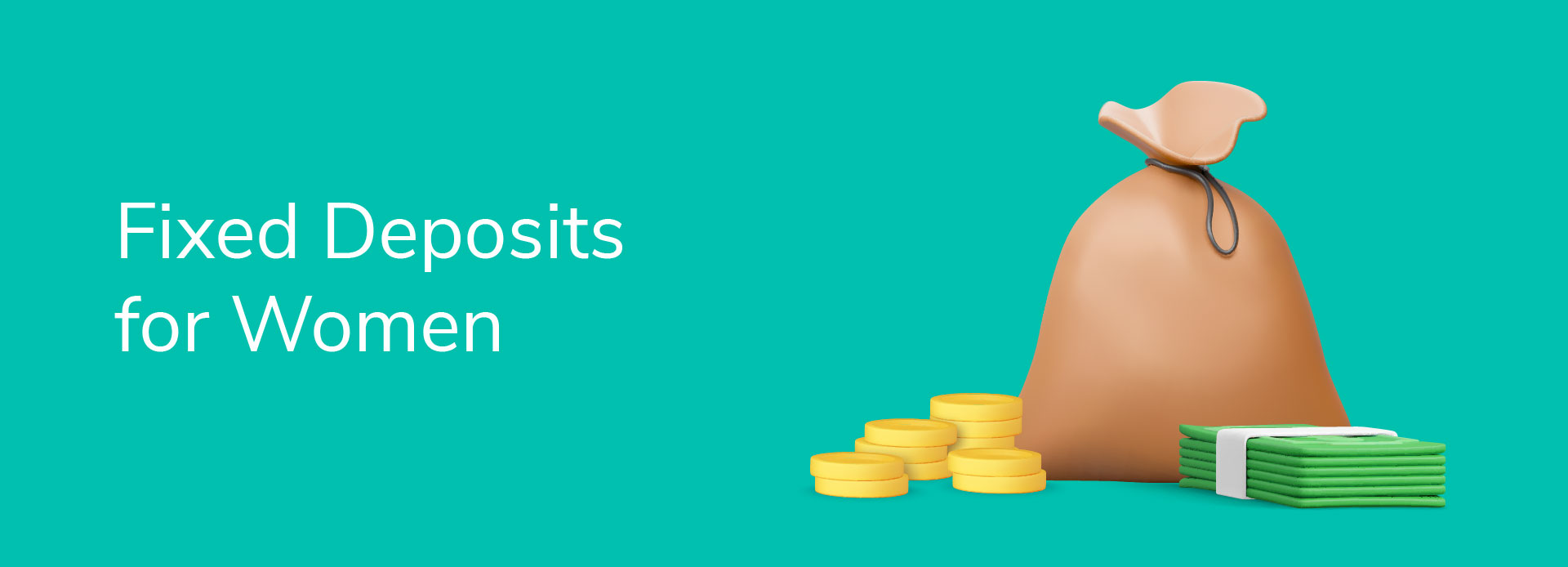
How Does Fixed Deposit for Women Work?
14 June 2024 | By INDIE
Women make invaluable contributions to families, communities, and economies worldwide. From managing households to pursuing careers and entrepreneurial ventures, women play multifaceted roles that often go beyond traditional stereotypes. Therefore, ensuring their financial security is not just a matter of equality but a fundamental necessity.
Fixed deposit is a familiar and trusted investment avenue when it comes to planning for financial security for many, offering a way to grow savings over a fixed period. But, what about fixed deposits specifically tailored for women? In recent years, financial institutions have introduced such schemes to empower women financially and cater to their unique needs.
In this blog post, we'll explore the working of a fixed deposit for women, exploring how they can benefit women from all walks of life.
Why Should Women Save Money in Fixed Deposits?
Fixed deposits for women offer many benefits that make them an attractive option to secure their financial future. Here are a few reasons why you should consider saving money in FD for women:
1. Higher Interest Rates
Financial institutions often offer preferential interest rates on women's fixed deposits, surpassing those available to men. These elevated fixed deposit interest rates for women can amplify returns on savings, hastening wealth accumulation and ensuring financial stability.
You can capitalize on these rates to achieve your financial objectives early, whether it entails building a safety net, investing in long-term assets, or planning retirement.
Recommended Read: What are Floating Rate FDs?
2. Flexible Tenure Options
Fixed deposits for women can provide the flexibility to choose investment durations that suit their financial goals and circumstances. Whether you aim for short-term objectives like a vacation fund or long-term plans such as retirement savings, you can select your tenure accordingly. This adaptability can empower you to align investments with specific life milestones and financial aspirations, ensuring optimal use of your savings.
3. Assured Returns
FD for women guarantees a predetermined rate of return, providing you with assurance and predictability in your investments. Unlike other market-linked options subject to volatility, FD rates for women offer stability by ensuring that the invested principal amount will yield a specified interest rate over the deposit's tenure. This assurance can shield your savings from market fluctuations and uncertainties, offering a secure avenue for wealth preservation and growth. With assured returns, you can plan your finances with confidence.
4. Loan Availability against FD
FD also serves as collateral for obtaining loans, allowing you to leverage your savings to access credit facilities. Financial institutions offer loans against fixed deposits, wherein the deposited amount acts as security for the loan amount granted. This arrangement can provide you with an additional source of liquidity, enabling you to meet unforeseen expenses or fund personal expenses without depleting your savings.
If you feel convinced to open a fixed deposit, wait and continue reading about the types of fixed deposits.
Types of Fixed Deposits You Can Invest In
Several types of fixed deposits offer options tailored to meet diverse financial needs and preferences. Let’s explore these types in detail:
1. Standard Fixed Deposits
Traditional fixed deposits involve depositing a lump sum with a financial institution for a predetermined period at a fixed interest rate. These deposits offer stability, security, and assured returns, making them a popular choice for risk-averse investors seeking predictable income streams.
2. Tax-Saving Fixed Deposits
Tax-saving fixed deposits enable investors to claim tax deductions under specific provisions of the income tax laws in their respective countries. These deposits typically have a lock-in period, and the interest earned may be subject to tax. However, the principal amount invested qualifies for tax benefits.
3. Senior Citizen Fixed Deposits
These FDs are designed specifically for senior citizens and offer preferential interest rates and additional benefits to individuals above the age of 60. They can provide retirees with a reliable source of income and financial security during their golden years.
Disclaimer: The information provided in this article is generic and for informational purposes only. It is not a substitute for specific advice in your circumstances. Hence, you are advised to consult your financial advisor before making any financial decision. IndusInd Bank Limited (IBL) does not influence the views of the author in any way. IBL and the author shall not be responsible for any direct/indirect loss or liability incurred by the reader for making any financial decisions based on the contents and information.





